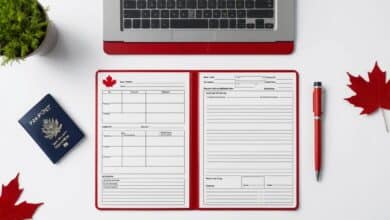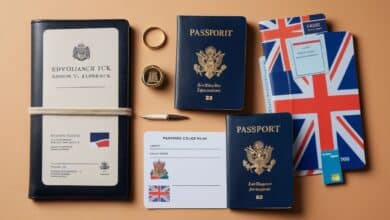How to Get a Sponsored Nursing Job in Amsterdam, Netherlands: Benefits, Process, and What to Expect
The Netherlands faces a growing demand for skilled medical staff in its hospitals and clinics.
With one of Europe’s most advanced healthcare systems, Dutch employers actively recruit international talent to fill critical roles. This creates exciting career prospects for qualified professionals seeking rewarding positions abroad.
Amsterdam’s hospitals offer competitive salaries and modern facilities. Many institutions provide language training and relocation assistance, easing the transition for newcomers. Workers enjoy a balanced lifestyle with generous vacation policies and strong labor protections.
Securing employment typically begins with credential validation through the Dutch registration process. Employers often guide candidates through paperwork requirements, including necessary permits. Cultural adaptation programs help foreign staff integrate smoothly into multicultural teams.
For those exploring European career options, the Dutch approach combines professional growth with quality of life. The country’s emphasis on innovation in medical care makes it an attractive workplace. This guide explains practical steps to navigate the application and relocation journey effectively.
Understanding the Dutch Healthcare System and Its Benefits
The Dutch healthcare framework is renowned for its innovative approach to medical services. It combines cutting-edge technology with patient-centered care models, creating opportunities for skilled professionals to thrive. This system prioritizes both staff wellbeing and high-quality treatment outcomes.
World-Class Healthcare Environment
Medical facilities feature advanced equipment like AI-assisted diagnostic tools and robotic surgery systems. Teams collaborate across specialties, with professionals contributing equally to care plans. Regular training programs ensure staff stay updated on the latest medical protocols.
Competitive Salaries and Work-Life Balance
Compensation packages include:
- Base pay between €2,000–€3,700 monthly
- Overtime bonuses up to 160% of standard rates
- Annual holiday allowances of 22-24 days
Most roles follow a 32-36 hour workweek, with strict limits on consecutive shifts. Employees receive comprehensive health insurance and pension plans. These features make the Dutch healthcare system attractive for those seeking career growth without burnout.
Nursing Visa Sponsorship in Amsterdam
International healthcare workers looking to practice in Amsterdam often require employer-backed authorization to begin their careers. Dutch medical facilities partner with specialized agencies to simplify entry procedures for qualified candidates.
Non-EU applicants typically need a combined residence and employment permit (GVVA). This document allows professionals to work and live in the Netherlands for up to three years. Employers must demonstrate they couldn’t fill the position locally before sponsoring overseas candidates.
Leading recruitment organizations streamline the process by handling:
- Document verification and translations
- Coordination with immigration services
- Post-arrival orientation programs
“Our team ensures every candidate meets both professional standards and legal requirements,” notes a representative from Care Force Netherlands.
The sponsorship process typically takes 2-4 months. Employers submit financial records and employment contracts to immigration authorities. Successful applicants receive guidance on housing, banking, and local registration.
Medical institutions cover most permit fees, though candidates may need to provide health certifications. Understanding these steps helps professionals prepare accurate paperwork and realistic timelines.
Evaluating Your Nursing Credentials and Qualifications
Qualification assessment forms the foundation for healthcare careers in the Netherlands. Dutch authorities meticulously review international academic backgrounds to ensure alignment with local standards. This process safeguards patient care quality while opening pathways for skilled professionals.
Degree Recognition and Professional Standards
The Netherlands recognizes two primary qualification levels for medical roles. A Bachelor’s degree (A1 level) or HBO5 diploma (A2 level) meets most requirements. European-trained professionals benefit from streamlined recognition under EU directives.
Non-EU applicants must submit documents through Nuffic’s International Credential Evaluation. This 4-week review compares foreign programs to Dutch benchmarks. Common outcomes include:
- Full approval for immediate practice
- Partial recognition requiring supplementary courses
- Recommendations for competency exams
Credential Evaluation Process
Start by gathering certified transcripts and course descriptions. NUFFIC assesses:
- Educational institution accreditation status
- Program duration and clinical hours
- Curriculum overlap with Dutch standards
“Early preparation prevents delays,” advises a NUFFIC evaluator. “Applicants should verify document requirements 6 months before applying.”
Some professionals complete language proficiency tests or specialized training post-evaluation. Partnering with recognized agencies helps navigate these steps efficiently.
Navigating the BIG Registration Process
The BIG registry serves as the gateway for qualified individuals entering the Dutch medical field. This mandatory system verifies practitioners meet strict competency standards, ensuring patient safety nationwide. Professionals complete this step before applying for clinical roles.
Required Documentation and Fees
Applicants need three key items:
- Valid passport or national ID
- Certified educational certificates with Dutch translations
- Proof of B1 Dutch language proficiency
The registration fee costs €205, payable during online submission. Some cases require additional workplace references or skills assessments. Processing takes 6-8 weeks through the CIBG office in Heerlen.
Renewal and Compliance Requirements
Registered professionals must maintain active status through:
- 2,080 practice hours every five years
- Annual declaration of good conduct
- Updated contact information
“Timely renewal prevents license suspension,” states a CIBG representative. “Plan ahead for continuing education credits.”
Those unable to meet work-hour requirements take refresher courses and competency exams. The registry sends reminders 6 months before expiration dates. Proper documentation ensures smooth renewals.
Preparing for the Work Permit and Visa Application
Navigating legal requirements forms a critical step for professionals aiming to join Dutch medical teams. Employers typically manage most documentation, ensuring compliance with national labor regulations. This collaborative approach simplifies procedures for candidates while meeting strict immigration standards.
Employer Sponsorship Advantages
Healthcare institutions handle key tasks to accelerate approvals:
- Proving no suitable EU candidates through government-mandated job postings
- Submitting financial guarantees and employment contracts
- Providing orientation materials for cultural adaptation
Combined Work/Residence Permits (GVVA)
The GVVA system merges employment authorization with residency rights. Applicants receive a single decision within 90 days through the Immigration and Naturalization Service (IND). Required documents include:
- Valid passport with six-month minimum validity
- Authenticated professional qualifications
- Medical clearance certificate
“The GVVA eliminates redundant paperwork, allowing professionals to focus on career transitions,” explains an IND spokesperson.
Non-EU nationals often complete biometric appointments at Dutch embassies. Processing timelines vary by country, with some applicants receiving permits before departure. Early preparation of certified translations prevents delays during verification stages.
Job Search Strategies in the Dutch Nursing Market
Effective career planning requires combining digital tools with expert guidance. Professionals seeking roles in Dutch medical institutions benefit from targeted approaches that align with local hiring practices.
Utilizing Online Portals and Recruitment Agencies
Leading platforms like MedischeBanenbank.nl and ZorgpleinNoord specialize in healthcare vacancies. These sites allow filtering by location, specialty, and employment type. General boards such as Indeed.nl also list openings at major hospitals like Erasmus MC and AMC.
Specialized agencies streamline international placements. Firms like Medacs Healthcare and BKV Group offer:
- Tailored job matching based on qualifications
- Document preparation support
- Guidance through the visa sponsorship process
One recruiter notes:
“We bridge cultural gaps by explaining Dutch workplace expectations during interviews.”
Networking through associations like V&VN connects candidates with decision-makers. Many hospitals host open days for potential hires to tour facilities. Combining online applications with agency partnerships increases visibility in this competitive market.
Step-by-Step Application Process for Sponsored Nursing Jobs
Effective preparation streamlines opportunities for international candidates pursuing medical roles. The journey starts by researching accredited recruitment agencies like Care Force or EMTG. These partners help match qualifications with open positions while guiding applicants through documentation requirements.
CV Preparation and Interview Tips
Tailor resumes to emphasize clinical expertise and cross-cultural adaptability. Highlight specialized certifications and multilingual capabilities. Use bullet points to showcase achievements in previous roles, keeping descriptions concise and results-oriented.
During interviews, expect questions about workplace ethics and patient care philosophies. Practice explaining how international experience enhances team dynamics. Many employers assess Dutch language progress, so mention any ongoing training efforts.
Successful candidates collaborate with agencies to finalize work authorization paperwork. This includes notarized diplomas and medical clearance certificates. Most institutions offer subsidized language courses to help professionals meet B1 proficiency standards within six months.
For more information, explore the official visa website mentioned in this article:
You will be redirected to another website
FAQ
What benefits does the Dutch healthcare system offer international professionals?
The Dutch healthcare system emphasizes work-life balance, competitive salaries, and modern facilities. Employers often provide paid leave, pension plans, and professional development opportunities to attract skilled workers.
How long does the BIG registration process take for foreign-trained nurses?
Processing times vary but typically take 4–6 months. Delays occur if documents require translation or verification. Applicants must submit proof of qualifications, language certificates, and pay fees to the Dutch Healthcare Authority (BIG).
Can employers assist with work permits for healthcare roles in Amsterdam?
Yes. Employers often sponsor the Combined Work/Residence Permit (GVVA), streamlining the process. This permit allows professionals to live and work in the Netherlands for up to three years, depending on the contract.
Are recruitment agencies helpful for finding nursing jobs in the Netherlands?
Agencies like Randstad and Tempo-Team specialize in healthcare placements. They connect candidates with hospitals, clinics, and care facilities, offering guidance on CV adaptation and interview preparation tailored to Dutch standards.
What language proficiency is required for nursing roles in Amsterdam?
Fluency in Dutch at B1/B2 level is mandatory for patient care. Some employers offer language courses during onboarding. English is widely used in administrative tasks, but clinical roles demand strong local language skills.
How does credential evaluation work for non-EU nursing degrees?
The BIG evaluates foreign qualifications to ensure they meet Dutch standards. Applicants may need supplementary training or exams. EU-recognized degrees often face fewer hurdles compared to non-EU certifications.
What should candidates highlight in their CVs for Dutch healthcare employers?
Emphasize clinical experience, specialized training, and language skills. Dutch employers value teamwork, adaptability, and familiarity with digital health systems. Tailor CVs to align with job descriptions and local expectations.
Published on: 17 de July de 2025

Bakari Romano
Bakari Romano is a finance and investment expert with a strong background in administration. As a dedicated professional, Bakari is passionate about sharing his knowledge to empower individuals in managing their finances effectively. Driven by this mission, he founded FinancasPro.com, where he provides insightful and practical advice to help people make informed financial decisions. Through his work on the site, Bakari continues to make finance accessible and understandable, bridging the gap between expert knowledge and everyday financial needs.






